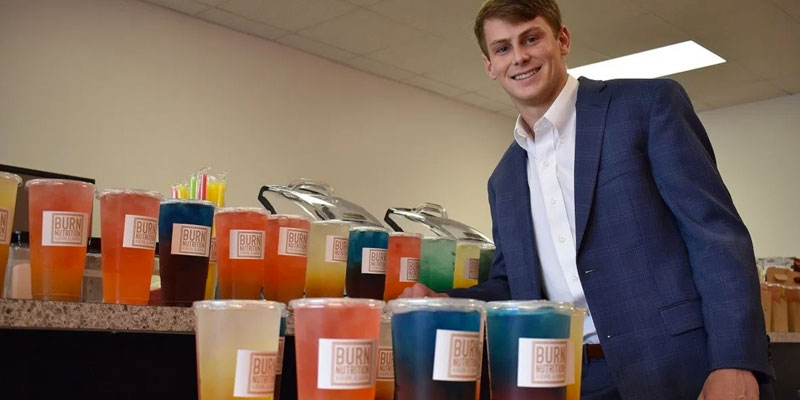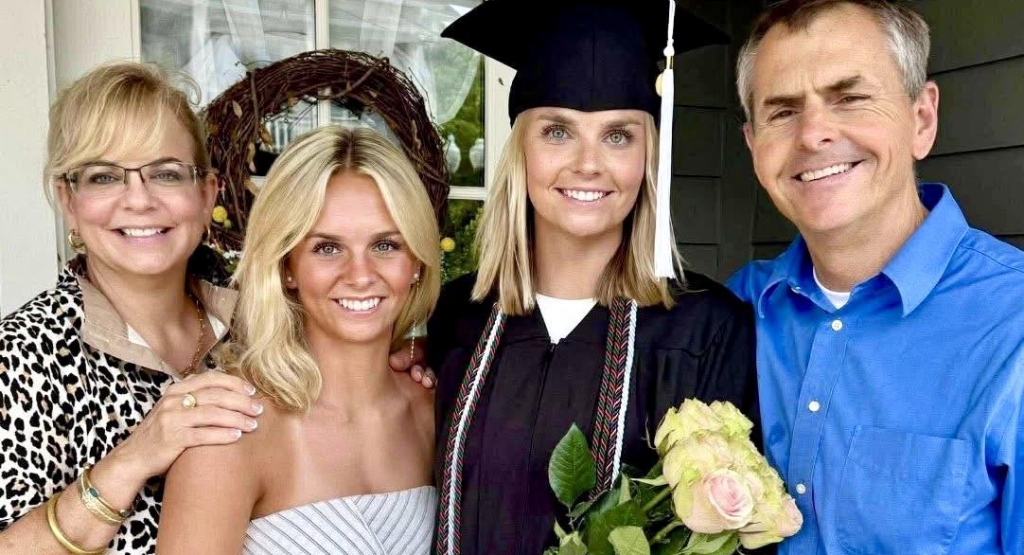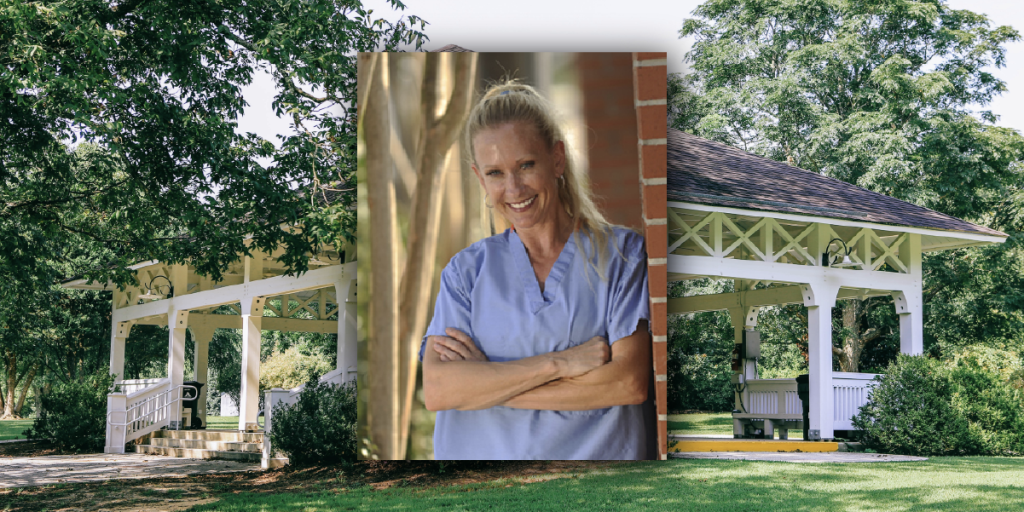Brock Murphy was enjoying spring break on the Gulf Coast with friends, briefly leaving behind the worries of starting a new business. Burn Nutrition opened its doors Feb. 1, and the owner/operator of Auburn’s latest health café needed some time to unwind.
Then COVID-19 changed everything.
“It was tough,” recalled Murphy, a junior in the Department of Supply Chain Management in Auburn University’s Harbert College of Business. “I had just opened a business; I’m in charge of making sure this business is successful. It was hard to tell some of our young employees that they’re not going to be able to work their normal hours. I was basically going to have to redefine the wheel for our business and find a way to make us successful. The week after spring break was one of the hardest weeks of my life.”
Murphy is 19 years old.
Since opening the doors to a shop that specializes in health-alternative, multicolored, flavored teas that carry names such as Captain America, Miami Vice and Cotton Candy – and a variety of vitamin-packed protein smoothies – Murphy has had the opportunity to use lessons from classes at Harbert College and apply them to his business.
It’s a good thing, too. There have been shipping problems with popular flavor packets and, with the onset of the coronavirus, Murphy had to brainstorm new ways to attract customers – and keep the ones that line up outside the storefront on Opelika Road in Auburn.
“In one of my first supply chain classes at Auburn, I learned that at the end of the day, supply chain revolves around customer satisfaction,” he said. In other words, getting the customers what they want as quickly as they want it and feeling good about the process.
“What we focus on at Burn is that initial two or three minutes, so that our customers have the best satisfaction experience possible when they walk in. I’ve read many books on Chick-fil-A, and there’s a reason why people come back there. At Burn, we hope to provide that same quality service.”
For several weeks this spring, Murphy had to creatively explore new ways to bring in customers. Under COVID-19 restrictions, customers could no longer walk through Burn’s doors, so it was operating curbside only.
“Once all of this started, the manager and I really had a lot of time to figure out how to boost sales,” he said. “It was just the two of us sitting there going from ‘X’ amount to almost less than half of that,” he said. “We were watching our new business fall apart.”
Then Murphy had an idea. He boosted Burn’s online and social media presence with a smartphone app, reaching out to customers with a promotional “loaded tea of the day” option. Those who ordered the option had the opportunity to win complimentary offerings. “That started drawing more people,” he said. “Things were starting to get back to normal a little bit, and then, all of the sudden, business grew exponentially.”
Employees who hadn’t been able to get their normal hours were needed again. Inventory sitting in a back room was being used. Curbside pickup and social media promotions saved the day for Burn Nutrition.
“People ask me all the time, ‘What has been the biggest thing you have learned?’ I said that it was the ability to adapt to the changing circumstances,” Murphy said. “Every day you might have to change to the circumstances. This time was very difficult, but I saw this was an opportunity to use my knowledge that I had gained in school to keep my business afloat.
“We had to increase our staffing levels to where we had three people making all of this product, one answering the phone and more delivering curbside. The curbside model really helped us build brand recognition. It built up a lot of regulars – and that’s where we are now.”
But satisfying regular customers is challenging when their favorite products are unavailable. For two weeks, flavoring packets for nearly half of Burn’s most popular loaded teas were not shipped. There were disruptions in the supply chain.
“Our supplier said they were doing everything they can to get the trucks out of the packaging facility,” said Murphy, who delivers 20 to 30 loaded teas to East Alabama Medical Center each morning. “Due to circumstances beyond their control, they experienced many different shipping delays.”
Murphy could not have forecast the disruptions, which are now resolved, but the process – and meeting customer demand – have made him fond of a necessary supply chain management discipline: forecasting demand. It’s a science, for sure.
“We haven’t been able to serve Cotton Candy loaded tea, which is a popular one, because of the necessary flavoring that hasn’t come in,” he said. “That’s on me for not ordering it early on. But the biggest thing I’ve learned is … at the end of the day … having too much inventory is bad, but running out of inventory is way worse.
“For us, we’re still trying to figure it out. The way our business works, we have only one place that we order from, so there are not really any other avenues. It’s hard because our product is expensive. Our business has really grown, but if I go out and order ‘X’ amount of dollars of product and then everybody decides to no longer drink the teas/shakes, then my numbers drop and I’m sitting on a ton of inventory that has a shelf life of three months. It’s hard because you just don’t know, especially during this time.
“What I’ve been learning in supply chain is trying to figure out the demand side of things. It’s taking a look at what’s been ordered in the past, what we predict to do this month and divide a few other factors. As you come up with your numbers, it changes every time. If you don’t do it correctly, you’ll lose money. To be a business, you have to be on track to make a profit. The only way to do that is accurately forecast the demand.”
Murphy, who forged valuable relationships growing up in Daphne and working at beach rental outfitters along State Road 30A in Florida, shares ownership of the business with two others, and admits his own role is built on “sweat equity.”
It all began last July when Murphy happened across an advertisement for what he considered a “nutritional club,” which became Burn Nutrition. He phoned a friend, and eventual investor, that afternoon.
“‘I think one of these would do well in Auburn,’” he told his friend. “’There’s a market for it, and I’m surprised no one’s put one there yet.’” Months later, Burn Nutrition’s Auburn location was born.
“People come in here and ask me if they can speak with the owner,” said Murphy. “It’s funny. But to get all of this experience so young, I’ve learned so much about leadership style. For me, it’s building some credibility because it’s tough at 19. Most people don’t want to listen to a 19-year-old. A lot of people are like … ‘You’re 19 and doing this?’”
Murphy is no stranger to business ownership. He owned and operated a commercial and residential lawn-care business in high school, and brought those aspirations on to college.
“My goal is to one day have a company with a huge online presence that revolves strictly around supply chain,” he said. “I chose supply chain management at the Harbert College of Business because it’s a major that really revolves around the customer experience and getting a product to the customer from point A to point B in the quickest amount of time. That’s what’s going to make me successful in the long run.
“The level of detail that the professors here go into in explaining how a supply chain works and the fundamentals that come along with it are going to be a game-changer for me.”
It’s already paying dividends.
This story originally appeared on Auburn University’s website.
(Courtesy of Alabama NewsCenter)













